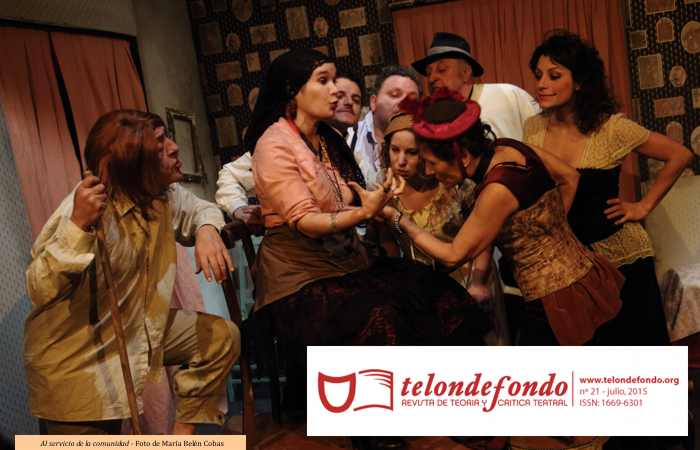Postmigrant German Theatre. Dicoursive Heterogeneity and Violence in Erpulat/Hillje's <i>Crazy Blood</i> (<i>Verrücktes Blut</i>)
Abstract
In recent years facing Germany´s multicultural reality, the project of a postmigrantisches Theater (Sharifi, 2011a, 2011b) has stepped up in the main theatrical venues of this country. In many cases, this postmigrant theatre arrives at the stages to develop a political criticism through a dialogue with traditional texts in order to devote the dramatic text, from a prestigious place of enunciation, to question and to break down the homogenous nature of the hegemonic discourses about the subjects with migrant background in Germany today. This is the way taken by Jens Hillje and Nurkan Erpulat’s Crazy blood (Verrücktes Blut, 2010), which brought to current Theater controversies in relation to (post)migrant minorities: through the implementation of a dramatic text which refers to and uses fragments of Schiller and other discourses recognized by the German society, resulting in points of heterogeneity in the dramatic speech and, therefore a “game with the other” that operates in the space of the non-explicit, of the “half-unveiled” (Authier Revuz, 2011). This article discusses this strategy of Crazy Blood, and of postmigrant Theatre in general, as a way to ensure the staging of violence in everyday life, especially that experienced by migrant minorities in multicultural societies, such as the German.Downloads
Los autores/as que publiquen en esta revista aceptan las siguientes condiciones:
-
Los autores/as [traductores] conservan los derechos de autor y ceden a la revista el derecho de la primera publicación, con el trabajo registrado con Licencia Creative Commons Atribución-NoComercial-CompartirIgual 4.0 Internacional, que permite a terceros utilizar lo publicado siempre que mencionen la autoría del trabajo y a la primera publicación en esta revista.
-
Los autores/as pueden realizar otros acuerdos contractuales independientes y adicionales para la distribución no exclusiva de la versión del artículo publicado en esta revista (p. ej., incluirlo en un repositorio institucional o publicarlo en un libro) siempre que indiquen claramente que el trabajo se publicó por primera vez en esta revista.
-
Se permite y recomienda a los autores/as a publicar su trabajo en Internet (por ejemplo en páginas institucionales o personales).











